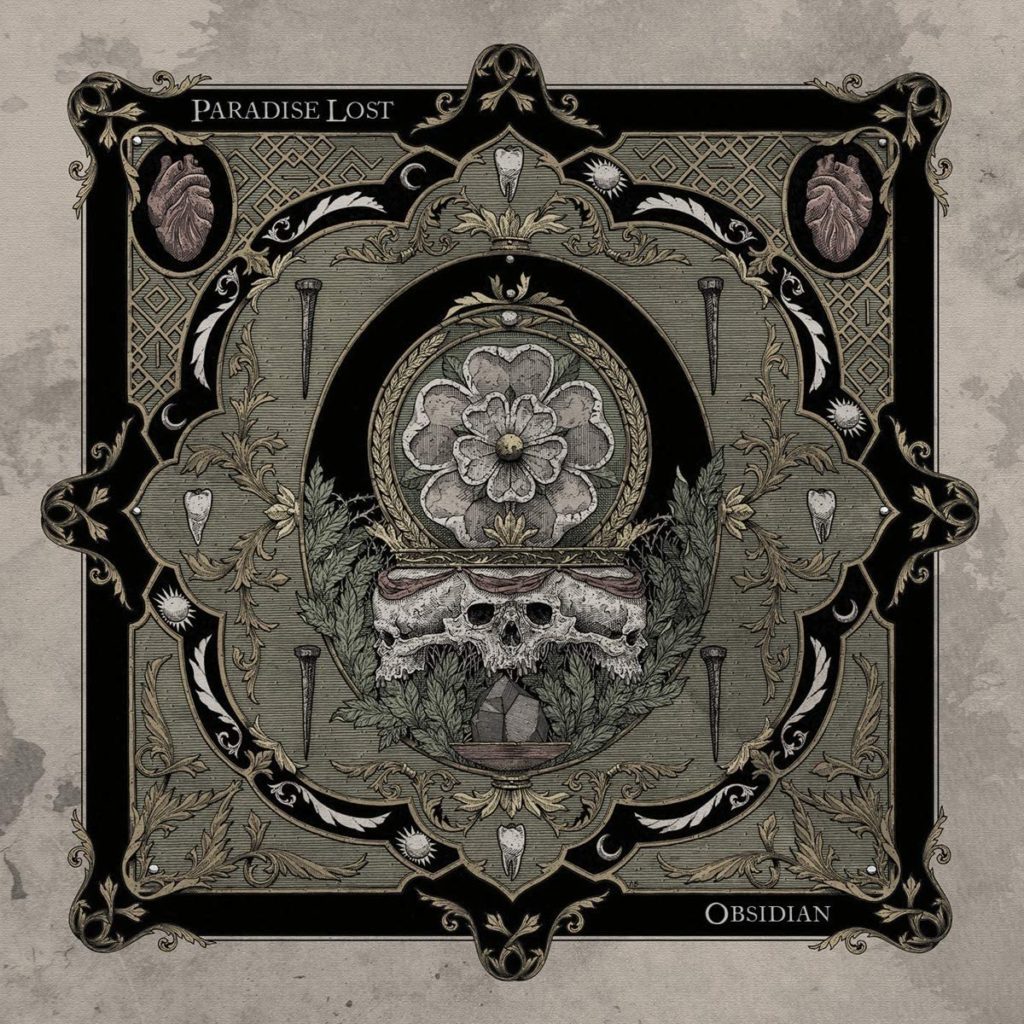
Paradise Lost have never been ones to remain creatively static and, whilst it has not always impacted positively upon the band’s commercial fortunes, the constant desire to forge new paths has arguably been the reason for the band itself remaining a (relatively) coherent unit while so many of their peers have suffered endless line up shifts or fallen by the wayside entirely. Such is the range of the band’s output that it is not only impossible for fans to agree on a favourite album, but many fans even have multiple favourites from different eras of the band’s storied existence. One area on which many agree, however, is that the band have been firing on all cylinders in recent years, with 2017’s Medusa particularly well received. Unsurprisingly, Obsidian sees the band opt to collaborate once again with Jaime ‘Gomez’ Arellano (who also helmed Medusa and The Plague Within), although typically, the band have not simply opted for more of the same, mixing things up with a greater emphasis on the gothic elements that made the early stages of their career so beguiling.
Opening the album, the slow building Darker Thoughts features a naked, vulnerable vocal from Nick that stands as one of the most evocative of his career. Backed by acoustic guitar and a subtly employed string section, Nick builds a considerable sense of atmosphere before the piece eventually plunges headlong into a foaming cauldron of death metal riffs and guttural vocals. It makes for a remarkable opener and follow up Fall From Grace does not disappoint, opening with a riff that harks all the way back to the majestic Icon. Slow paced and with a sense of faded grandeur, Fall From Grace makes good use of Nick’s scabrous tones, although the haunting, clean-sung chorus proves to be the highlight. However, Obsidian is not out of surprises, and the tough beat of Ghosts gives way to a gothic monster that takes elements of The Cure and Sisters Of Mercy and beats them around the head with a typically hulking riff. One listen and you’ll be tempted to agree that, on the evidence of these three tracks alone, the album is liable to rank high in Paradise Lost’s already deeply impressive catalogue. A short, melodic prologue leads the listener into the epic doom of The Devil Embraced, another track that sees Nick embracing cleaner tones, although a guttural bark arrives to push the chorus to a darker place altogether.
Opening the album’s second side, Forsaken feels like a long-lost track from Draconian Times, with the slow-paced riffing, atmospheric keys and Nick’s confident vocal all driving the track forward. In all the years since that classic emerged, this might be the closest that the band have ever come to setting foot on that particular ground once more, and it sounds immense. Rather more immediate is the hard-edged Serenity, a potent death-doom track scarred by Nick’s intense vocals, although even here the band are not content to rest on their laurels, introducing a moment of calm that gives the title meaning, whilst recalling the stunning title track of Gothic. The pace slows with the unusual Ending Days, a track built around Waltteri Vayrynen’s increasingly frantic rhythms and Stephen Edmondson’s prowling bass lines. A piece quite unlike anything that Paradise Lost have done before, it shows that, even as they embark on their sixteenth album, the band are still unafraid to explore new sonic territory. The taut Hope Dies Young recaptures the Sisters Of Mercy vibe of Ghosts, and the result is not unlike a track from One Second were the album to be recorded stripped of technology. All that remains is for the piano led Ravenghast to see the album out. A harrowing finale that juxtaposes the verse, delivered as if by the voice of death itself, with the woebegone cleans of the chorus, it draws down the shades on one of the most varied, yet intense albums to which Paradise Lost have put their name.
Make no mistake, whilst there is plenty of atmosphere in these dark gems, Paradise Lost have retained the gut-wrenching weight of the previous two releases, and the results are spectacular. In part, the album does much to unite elements ranging from the ground-breaking Gothic to the haunting One Second. And yet, the album is more adventurous than Paradise Lost simply leafing through their own catalogue, and pieces such as the epic Ravengahst and the stunning Ending Days show a band as comfortable with experimentation as they are with their past. Obsidian feels like the work of a band in love with the art of making music for its own sake, and it stands as a towering success, even by the standards of Paradise Lost’s exceptional back catalogue. 10/10



